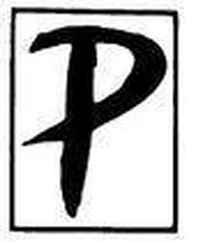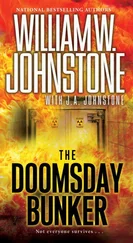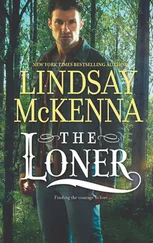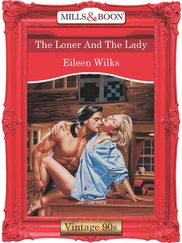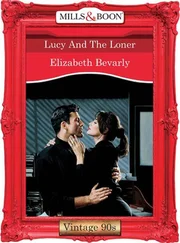Well, he was talking that subtle stuff I never did figure out, but it sounded a little like a bribe to me. ‘Worth my while.’ What did he mean? And ‘treating the artists right?’ What did he mean? And telling the county supervisors I’m the right man for the job, what would he do that for? I couldn’t see he was doing anything wrong or causing trouble, but it sure got me to wondering some. I decided I’d keep an eye on the place, and the man. At least until the county supervisors pitched me to the dogs.
He got busy with the workmen, and I watched a while and headed into the sunlight, where it was a lot warmer than in that cold place. Doubtful was busy. There were carriages and wagons on the road. It hadn’t rained, so the road kicked up dust, which was better than mud. It was still a raw town, but it was growing, and it seemed like I was seeing new faces every day. The ranches were some of the finest in Wyoming, and all a rancher had to do was push some skinny cows out, and pretty soon they fattened up and grew, and without much help from anyone, either.
Maybe it was a good time for an entertainment palace to come in. There were even a few ladies in Doubtful, but not many. Women were scarce around this place. Maybe a show with a few sweethearts in it would be good business. All them cowboys, living in bunkhouses with lots of other cowboys, most of them with smelly feet, would take to the opera house. That would be fine with me, long as they didn’t shoot holes in the roof or scare the performers—Ralston was calling them artists—off that little stage.
I sure had learned a lot this day. I’d never heard of variety shows, and I still didn’t know what went on, but I’d find out soon enough. It amazed me that there were regular companies wheeling around in coaches and wagons, setting up their acts in town after town, and then pulling up stakes and heading for the next one. It’d be strange folks, traveling like that, not ever putting down roots, never settling in any place. They’d be a lonely bunch, traveling like that. It all made me wonder how anyone would become a player in a variety show. That would be a hard life, too, moving in all kinds of weather, getting bogged down in mud, or stuck without shelter somewhere. But I guess some people liked it, or they wouldn’t be doing it. Maybe a few even got rich, but I sort of doubted it.
So Doubtful was about to get a theater. I’d never met an actress in my life, and I decided I’d meet a few when they rolled in. What did they do for a living? I’d knowed a few female gamblers, slick with cards, and I’d met a few ladies of the night. I had a good idea of how them women got through life. But an actress, now that was a new side of beef for me. If they sang, if they danced, if they did little scenes, they must have gotten the practice of it somewheres.
All in all, I thought, Doubtful was about to get much better.
Chapter Three
Things were pretty quiet in Doubtful for a few days. I talked with a few barkeeps to see if anyone was spending that dollar and six bits, but no one was. I kept an eye out for thick, medium-high bandits with black bandanas, but there weren’t any walking around town.
My deputies, De Graff and Burtell, they must have got wind of what was about to befall me, because they quit being my pals and stared away from me whenever we gabbed in the office. Maybe the supervisors had been asking if I done good work.
The one thing that did change was the color of Doubtful. All of a sudden there was these big red and blue and green sheets plastered to the side of buildings. I didn’t know what to call them: playbills, or broadsides, or whatever, but Ralston was promoting his opera house and the opening show any way he could, and that meant posting these advertisements from one end of the county to the other.
He’d hung a sign on his new building, calling it “The Ralston.” I guess that was better than calling it the Doubtful Opera House. And he’d had some kind of get-together in there, with all the town’s bigwigs having a mint julep on stage. I wasn’t invited, not being a bigwig.
I don’t read so good, but I made out what was on them broadsheets. There was a lot of gorgeous women in that show, all dressed up in feathers. At least that’s what the pictures looked like. That would sure draw a crowd in woman-starved Puma County, where there were about ten men for every gal, and the gals were all married. This outfit on its way to Doubtful was called the Gildersleeve Variety Company, run by Madame Magenta Gildersleeve, of the Slovakian Royal Ballet. There would be twenty beauties, along with the well-known comedian and tap dancer Horace Van Der Platz, the maestro of the top hat, cane, and white spats. And there would be a breathtaking tableau, featuring the famed women in the paintings of Rubens, displayed exactly as they appeared in his art.
I didn’t know what a tableau was, but anything that displayed famous women would be worth a gander. I wondered if my badge would let me in free. Down there in the fine print it said the company traveled in thirty-six coaches, and had been the sensation of Prague, London, Cheyenne, Deadwood, and Denver.
Well, I had to hand it to that Ralston. He was going to fill his opera house, and maybe I’d even see this bevy of beauties a second time. Puma County was shy of beauties, although if Belle, who ran the boardinghouse, would lose a little flesh, she might qualify on a night when the light wasn’t too bright.
Then one fine day I spotted Ike Berg meandering along our main drag. He was the sheriff over in Medicine Bow County, and I didn’t need any help figuring out what he was doing in Doubtful. The super visors were looking him over for my job. But there he was, dressed in his usual black suit and starched white shirt and string tie. He was the skinniest man I’d ever seen, almost skeletal, and his face was nothing but parchment over skull. He didn’t have no flesh on him, just that parchment covering bone. But he was reputed to be as good as they ever got with his Peacemaker Colt. And there he was, grinning at me as we approached each other in front of the smithy.
“I guess I know what you’re here for, Ice,” I said. No one called him Ike. He was Ice Berg to the world.
“I hear you got a crime wave,” Ice Berg said.
“Stickup man cleaned my purse,” I said.
“Town fathers aren’t happy with it. They’re embarrassed. The sheriff got himself robbed.”
Berg smiled, baring even, white teeth. I wonder whether teeth like that came with skinny.
“That was careless of you.”
“You applying for my job?”
“The town’s foremost citizens sent for me, Pickens. I’m here to oblige them.”
He smiled again, like he knew things I didn’t know.
“They offering you the job?”
“We’re dickering about pay. I’m asking eighty a month and they won’t budge from seventy-five.”
“Seventy-five! I earn forty.”
“We’re usually worth what we’re paid, Pickens.”
His bony hand was actually hovering just over his piece, which sure made me wonder. Did he think I’d shoot him? Or was he just precautionary by nature? Shooting wouldn’t be a bad idea, but my ma always said, don’t shoot anyone unless it’s a good idea.
He was standing there in the sunlight, chewing a toothpick, looking kind of smirky, and I thought that shooting him might improve the peace on Main Street. But I didn’t, even though I knew I was faster than he’d ever be.
“When’ll you hear?” I asked, since it bore on my future.
“They said there’s a mess of petty crooks heading for town, theater riffraff, and they’re going to see which of us keeps the lid on.”
“You mean you’re a lawman around here for a while?”
“Unofficially.”
Читать дальше

